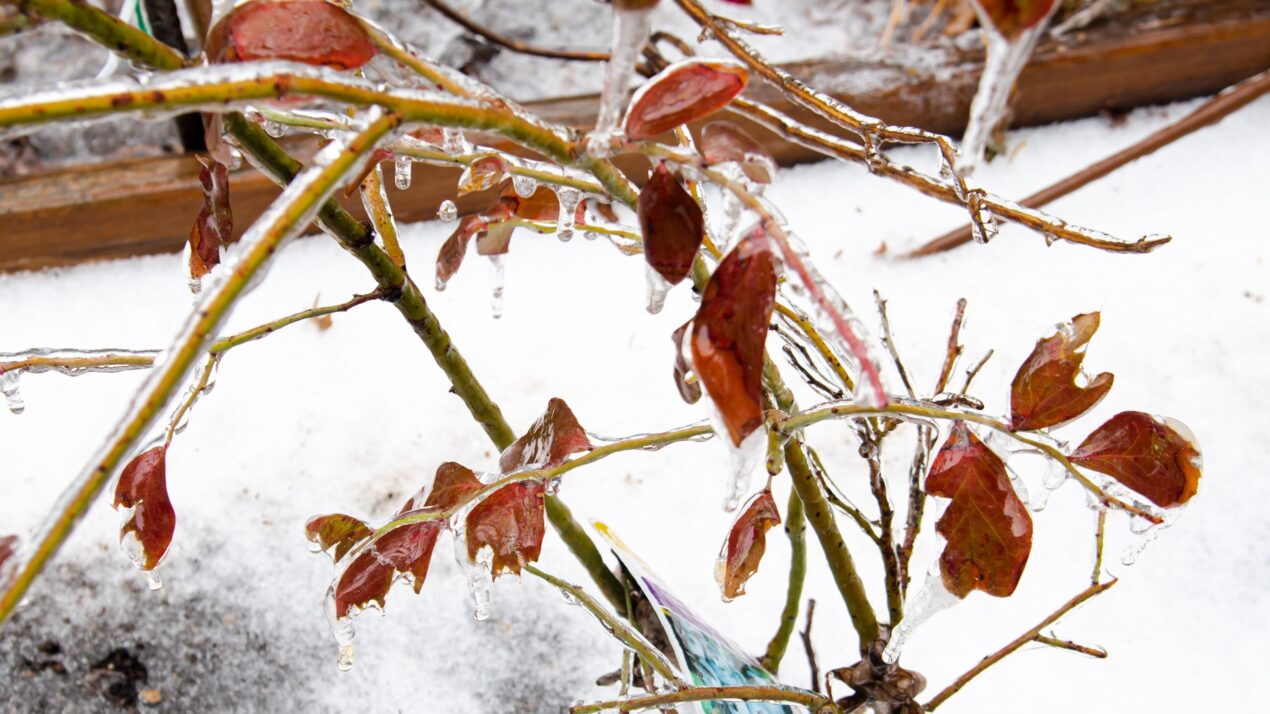
Snow can be a blessing and a curse when it comes to your plants whether it’s your shrubs or trees in your yard. Jonathan Stickels, Operation Manager at Mariani Plants, says snow can actually serve as an insulator for plants. It’s really the ice that’s the biggest detriment to any of these plants. He provides insight into just how much of an impact that it can have on the nursery industry.
Protecting your plants from the harsh winter weather can be a difficult task. Stickels says at Mariani Plants, they cover them in hoop houses. But the plants they have growing in the field, they simply hope for the best.
“On plants that have multiple stems similar to bushes you can tie them up to keep those branches tight to help with the load,” he adds. “That’s about all you can do really. They’re built for nature so you just kind of have to hope that they can weather the storm and having the right plants in the right place makes a big difference.”
After a snow or ice storm you can see the immediate effects it has on your plants. Sometimes when you have a lot of snow mixed with sunny days, the southwest side of trees will happen to get blistering of the bark and begin to crack open. These cracks can be seen forming quickly in extreme temperature changes but other times may not show the impact until the plant starts growing around May.
“It’s a time like this that’s a little bit scary for the nursery industry when we have warm fronts one day and then these storms the next,” says Stickels. “If the plants start to want to grow and you get these cold freezing events, it can really hurt the buds on the plants and cause stunting of the growth in the springtime.”
He says it’s important to have a general idea of what your loss could be when it comes to managing commercial inventory and having that allocated ahead of time. He has historical data that they run a master production of data points that helps determine how much loss in certain types of plants that they get. They use that data to determine how many of each plant they actually produce.
The cold winter weather can also affect the insects that are both beneficial and a pest to nurseries. On the days you have a warm front, it fools them into wanting to emerge from their winter hideaway. Then when the winter weather kicks back in, it takes out those insects and potential pests.
“The nursery business has been wild,” adds Stickels. “2020 and 2021 were some of the best seasons we’ve ever seen. 2022 was also a great year, but definitely not the pandemic years where it just seemed to go through the roof.”
He encourages others to get out and enjoy not just garden centers, but botanic gardens and arboretums to appreciate the nursery industry. Being part of the industry allows you to be a part of the legacy of providing quality landscapes.

Leave a Reply